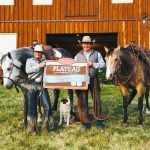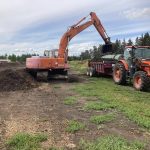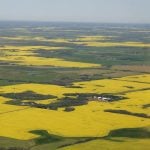CARMAN, Man. — Bovine tuberculosis around Riding Mountain National Park hasn’t gone away, but the situation seems to be improving, says Manitoba Beef Producers.
“This has been a very, very slow issue, but I think we’re beginning to see some real progress on it,” MBP general manager Cam Dahl said at a Manitoba Beef Producers meeting.
He said fewer cattle seem to be coming in contact with infected wildlife that live in the nearly 100 kilometre long national park, and eradication efforts are better co-ordinated.
Read Also

AI expected to make itself felt in food systems
Artificial intelligence is already transforming the food we eat, how farmers produce it and how it reaches the consumer, experts say
Bovine TB has caused anxiety for hundreds of cattle producers living along the park’s boundary.
Elk and deer in the park carry the disease, but it hasn’t been easy to determine which groups are infected and how to eliminate them.
The disease has been described as a problem for the entire Canadian cattle industry because it could lose the U.S. market if an outbreak caused the American government to take action.
Farmers living on the edge of the park regularly test their cattle for TB exposure and move their livestock into high-fenced enclosures in the fall and winter.
Game fences also protect feed sources, and many farmers have moved their feeding yards away from the park in an attempt to minimize the chance of elk and deer coming into contact with their herds.
MBP was also pleased when the Manitoba government lengthened the white-tailed deer hunting season around much of the park and approved more tags for hunters.
“These changes acknowledge that bovine tuberculosis poses a significant problem to both wildlife and agriculture,” MBP president Ray Armbruster said when the expanded hunting was announced.
More hunting will reduce wildlife populations of possibly-infected animals and provide more samples for TB testing. The increased testing is expected to provide a better picture of the extent of the disease.

















